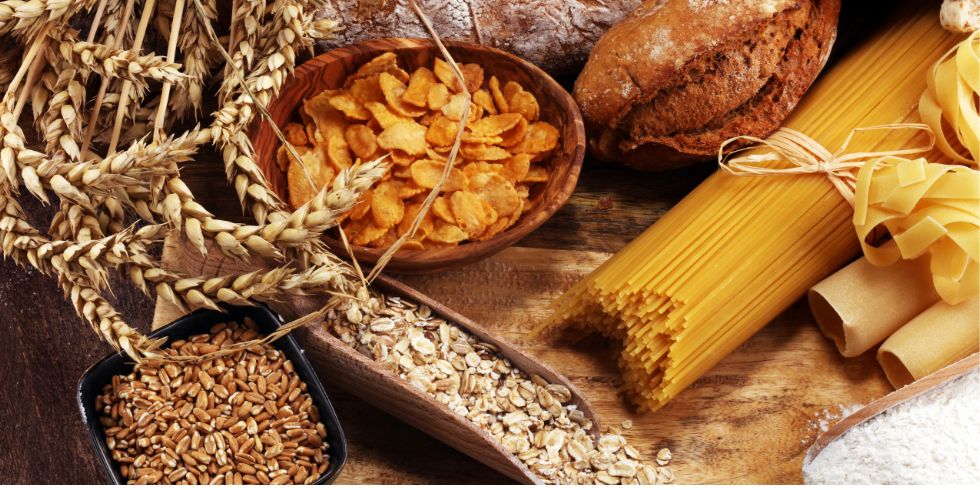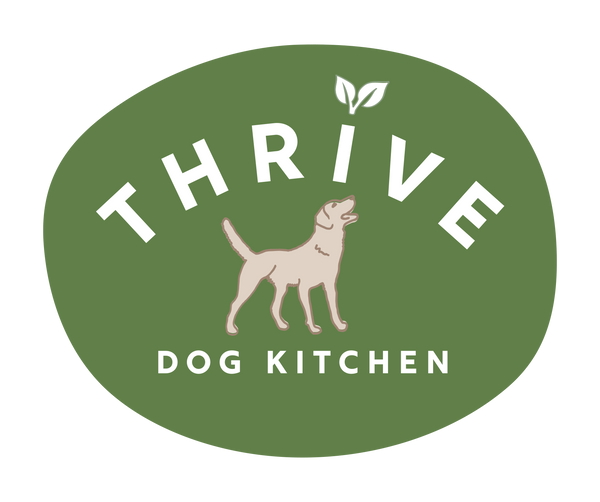
5 Reasons NOT to Feed Your Dog Carbohydrates
Share
Introduction
Types of Carbohyrates
- Functional and
- Non-functional
Reasons NOT to Feed Your Dog Carbohydrates
Reason #1
Dogs don't have a dietary requirement for any type of carbohydrates, functional or non-functional
But, dogs do have a dietary requirement for fat and protein. While dogs can survive on a diet predominantly based on carbohydrates, they will not thrive. 150 years ago dogs' overall consumption of carbohydrates was estimated to be less than 10% of their caloric in take. Bear in mind, that 150 years ago dogs were much more active than today's typical dog that leads a more sedentary lifestyle.
Reason #2
Pro-inflammatory
The way dogs' body manages the addition of starch creates inflammation. The processing of the high-starch carbohydrates increases blood sugar levels, while decreasing immune function. Thus, the decrease in immune function puts stress on the rest of the body.
Reason #3
Increase risk of chronic disease
The increase consumption of non-functional carbohydrates in today's dogs will have adverse affects on their health because it will impact their gut and skin health to name a few.
Reason #4
Contains high starch content
As dogs have evolved alongside humans, they have adapted to be able to digest more carbohydrates. A 2013 study from Uppsala University in Sweden summarised that dogs can thrive on a high-starch diet because they have more genes of the amylase enzyme, that breaks down starch in the body. However, their findings were considered ambiguous by Dr. Jean Dodds and Diana Laverdure because the researchers did not specify how many more of this gene the dog has compared to their ancestor the wolf. Just because they can, doesn't mean they should. Dr. Doug Knueven, DVM states:
To say the because dogs can digest starch proves that they thrive on a high-starch diet is like asserting that because people can process ethanol and glucose we thrive on a diet rich in rum and cookies!
Reason #5
Increase risk of obesity
The over consumption of non-functional carbohydrates, also known as ultra processed carbohydrates, contributes to the obesity epidemic in dogs today. In the US the rate of overweight and obese dogs has risen by 37% between 2006-2011. This has down stream effects on these dogs, including diabetes, joint issues, such as osteoarthritis, heart and skeletal issues.
Conclussion
Sources
- Habib, R and Becker, K, DVM. The Forever Dog. 2021, HarperCollins, New York
- Becker, D, DVM and Taylor, B. Dr. Becker's Real Food for Healthy Dogs and Cats. 2015, Natural Pet Productions, United States.
- Dodds, J, DVM and Laverdure D. Canine Nutrigenomics, the New Science of Feeding Your Dog for Optimum Health. 2015, DogWise Publishing, Washington.
- Brady, Conor. Feeding Dogs, Dry or Raw? The Science Behind the Debate. 2020, Farrow Road Publishing.
